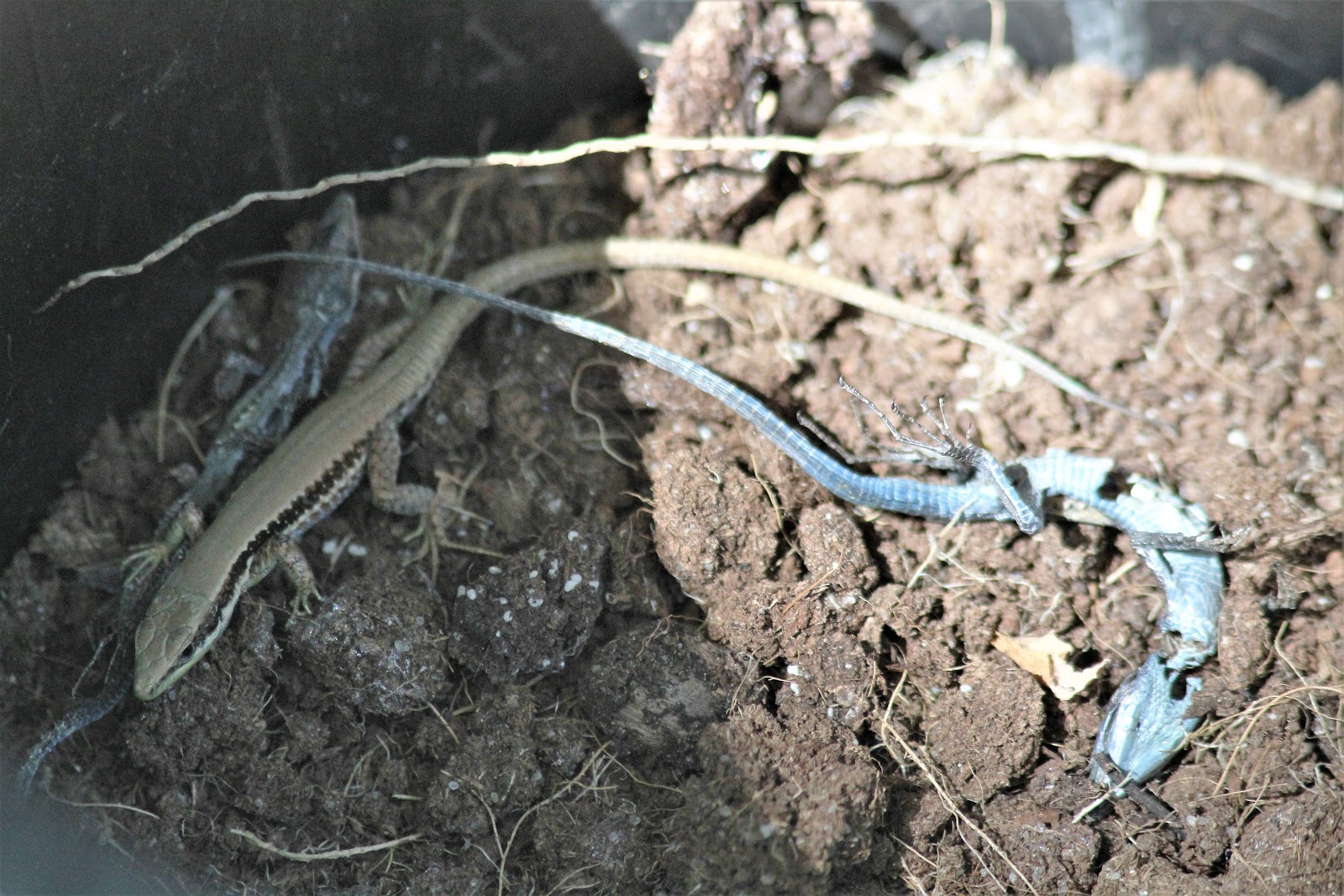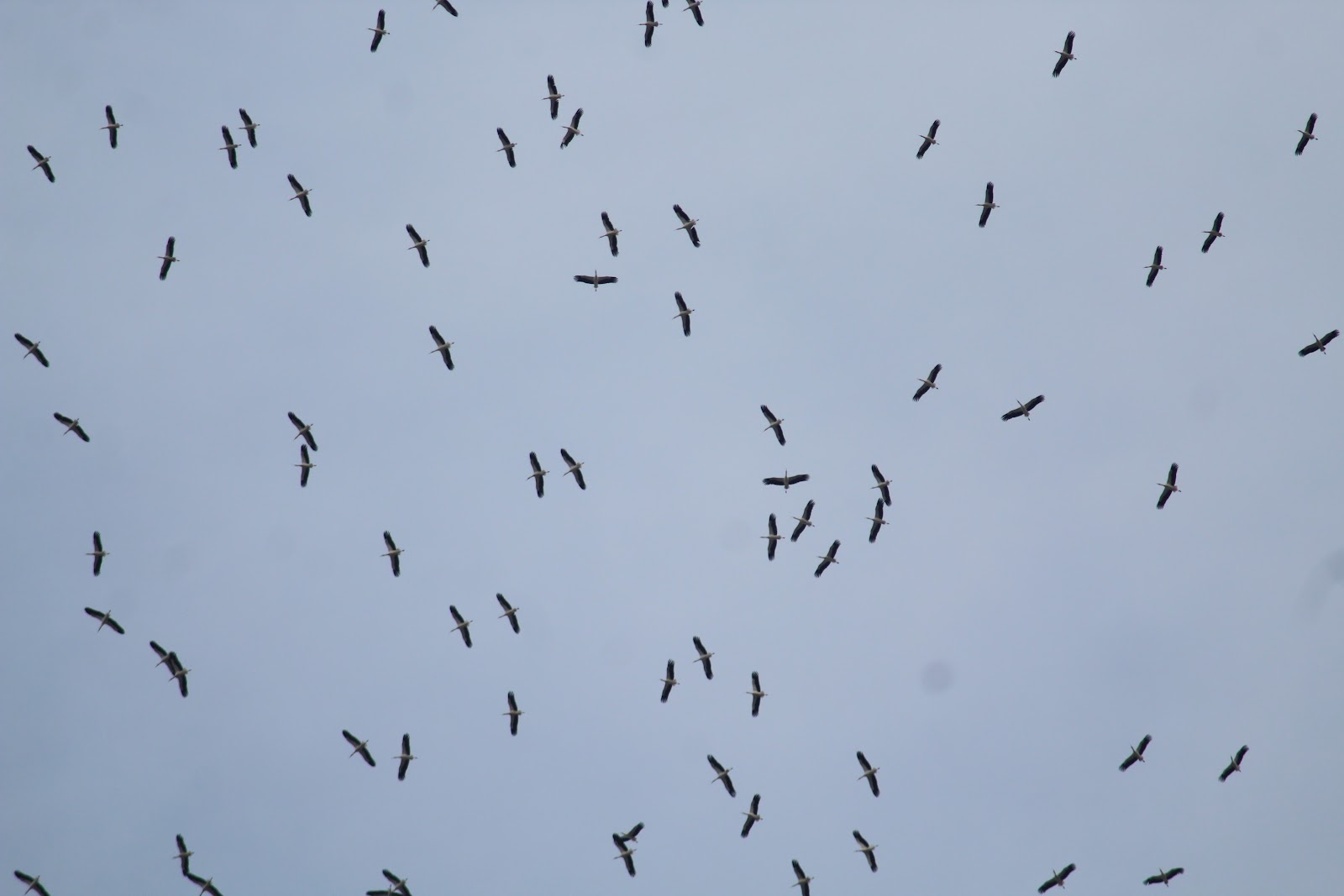It was a perfect Shabbat for the garden, the spring weather bringing out a flurry of activity among its varied residents.
The liittle boys arranged plastic chairs in the middle and we enjoyed a mellow couple of hours watching our local soap opera played out by the Lebanon lizards who live on and in the wall, using the surrounding trees and bushes as their playground.
"Shhhh!" Twin H admonished Mid Bro in a theatrical whisper "you''ll scare them away and then we'll have no one to watch."
Then he resumed his studious, quiet observation of the wall's denizens as they darted and climbed over and between its uneven stone cladding.
"Ahhh" they'd all give a collective gasp when the dominant blue headed male chased a wayward little lizard along the top of the high wall, and at some stage the little guy would admit defeat and drop off the wall in to a bush or the herb border, pick itself up, and steathily resume its climb up the wall, cautiously, in the shade of a bush or sneaking from crack to crevice.

At some point the resident agama lizard made an appearance, a mini-dinosaur of dark armour and spines in contrast with the sleek, brightly coloured graceful Lebanon lizards we more commonly see.
He was a giant by comparison but was content to enjoy his sunny spot on the wall, basking in the warmth which had at long last made an appearance after a frigid March.
He paid no heed to the antics of the smaller lizards with whom he shared the wall, ignoring them as a resigned, experienced older patriarch might the excited banter of his young progeny.
The little boys resorted to hand signals to draw attention to any new creature making an appearance. Look right and over the lemon tree, down among the purple flowers of the lavender, up top near the abundunt citrus trees of our neighbour. Remember when the wind blew oranges and clementines off their tree in to our garden? They tasted so good.
From time to time the show was interrupted by a surprise new comer, and a rustle of excitement swept over the human audience:
A honey bee industriously working on the lavender blooms
A butterfly flitting lazily around the African iris (dietes bicolour)
A coal hued male blackbird feasting on worms pulled from the compost pile.
Determined ants from the anthill in an earthy corner going about their regimented ant business.
An oblivious young jay swooping down on to the ground right in front of us, intent on finding a quiet spot to devour its contraband peanut pilfered from a neighbour's bird feeder.
Doves, sparrows and crows nipping at the fragile twigs of tall trees in search of nesting materials.
A kestrel hovering in the sky hunting for its lunch.
Migratory Alpine swifts zooming and wheeling like a Battle of Britain dogfight as they pursued flying insects.
The hysterial cacophony of the pesky myna birds up on a neighbour's rooftop planters or feuding amongst themselves in the Queensland bottle tree.
It was this last that made Twin H look up from his studious observation of the wall to see if perhaps an even more interesting drama was unfolding high above.
You never know with mynas. We've seen them try (and sometimes succeed) stealing other birds' eggs from their nests. Seen a mother laughing dove fight a pitched battle with a myna to save her brood from a myna brigand. A pair of crows, themselves capable bullies, make a stand against these aggressive intruders.
I turned my eyes up to, scanning above the tree for good measure and there they were in the hazy, blue spring skies: a small posse of migrating storks gently milling about in the thermals, the advance guard of a huge flock still mostly specks in the distance.
Not as close and impressive in numbers as the one's I'd seen Friday lunchtime, but thrilling enough, a majestic wave of the massive avian armada that fills our skies this time of year.
They are heading north to their summer breeding grounds as they do every year, only a handful will stay to nest in northern Israel. The rest will keep on until they cross over in to Europe, confident that as every summer they will find their roosting sites as they left them, unaware of war and avian flu.
There seems to be no bird grapevine giving them advance warning that things in their summer home may not be what they expect. Some are heading for Lithuania, Latvia, the lands of the Baltic Sea, maybe some also to Poland, Romania.
Most though are returning to Russia and Ukraine. Who knows what awaits them there.
The little boys call out to the storks sotto voce "take the people in the north shalom and sunshine from Israel!"








